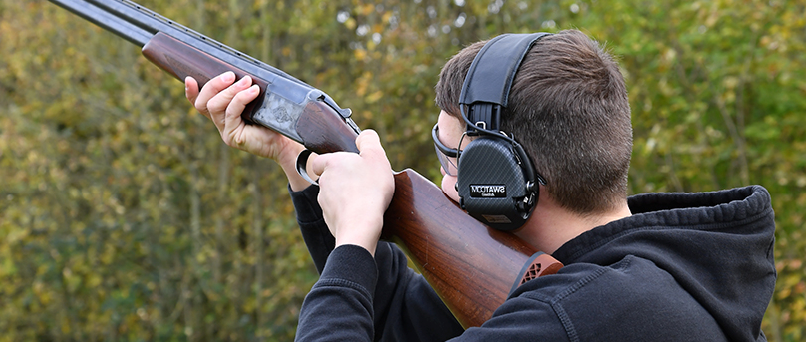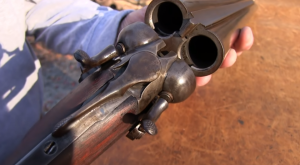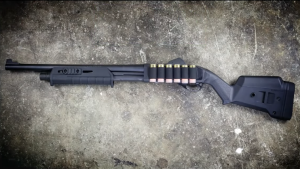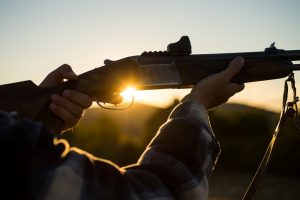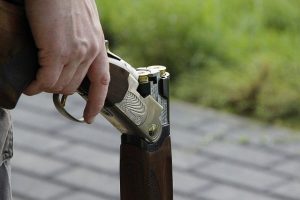One item that is always of concern when shooting is safety. Hearing safety is a primary issue. Damage to your hearing can result in just a few minutes of exposure to the sound of a rifle or shotgun. Many shooters wonder which is louder, shotguns or rifles?
What We'll Cover
- The Physics of a Gunshot – What Makes all the Noise?
- Why are Rifles Somewhat Louder than Shotguns?
- Barrel Length Plays a Part – Shorter Is Usually Louder
- The Speed of Sound – Adding to the Noise Problem
- What is Considered a Dangerous Noise Level?
- What About Suppressors – Won’t They Protect Your Hearing?
- The Takeaway from the Facts – Hearing Protection is a Must when Shooting
On average, rifles are slightly louder than shotguns. Looking at test data shows that the decibel levels of shotguns and rifles are similar. The average decibel level of shotguns is 154.112. Centerfire rifles come in at 157.54 decibels. In any event, any sound above 85 decibels is damaging to your hearing and requires protection.
Many factors contribute to the level of noise a firearm creates when discharged. We’ll discuss these factors and what creates the noise of a rifle and shotgun that is important to understanding how to protect your hearing when shooting.
The Physics of a Gunshot – What Makes all the Noise?
The sounds produced when a shotgun or rifle fires are complex. Many people associate the loud noises of many gunshots with the gunpowder's explosive force igniting in the rifle or shotgun. To a certain extent, this is true, but there are other factors to consider.
- The expanding gases behind the bullet create a pressure wave as the bullet leaves the muzzle of the gun. We experience this as a loud boom.
- The much higher-pitched crack associated with some gunshots is the bullet creating a small sonic boom as it passes the speed of sound.
What you hear is a combination of different aspects of the physics of a gunshot. In any case, the levels of sound generated by modern firearms are well above the levels that can damage hearing permanently.
Why are Rifles Somewhat Louder than Shotguns?
In general, it is the physics that makes the difference. Shotguns tend to have characteristics that make them somewhat less noisy than large-caliber centerfire rifles. For instance:
- Shotguns tend to operate at lower internal pressures than centerfire rifles. Lower pressures generate lower decibel levels at the muzzle of the shotgun.
- Shotgun barrels tend to be longer than rifle barrels overall. The longer the barrel, the more the expanding gas has time to dissipate its energy before exiting the barrel.
- Shotgun barrels are larger in diameter, allowing the expanding gas more room to expand its energy.
- Hunting shotguns propelling small loads of shot tend to allow more of the expanding gas to pass ahead of the projectile before leaving the barrel.
- Most shotgun loads are subsonic, which eliminates the sharp crack associated with most rifle cartridges.
Barrel Length Plays a Part – Shorter Is Usually Louder
Barrel length is a big factor in how the decibel level of a shotgun or rifle. The more time the expanding gases spend in the shotgun or rifle barrel, the lower the decibel level in general. The sound at the muzzle is related to the gases' speed and pressure as it leaves the gun.
Longer barrels allow the gases trapped behind the bullet more time to expand, lowering the gases' pressure. This lower pressure tends to moderate the level of sound the gases generate. This lowering of decibel levels is typically true of both shotguns and centerfire rifles.
The Speed of Sound – Adding to the Noise Problem
Muzzle velocity is another factor that affects the noise level of both shotguns and rifles. Part of the noise problem with shooting is the sharp crack heard as the projectile leaves the rifle or shotgun's muzzle. This crack is the bullet passing the speed of sound and creating a sonic wave that we experience as a sharp, intense sound.
A jet airplane that exceeds the speed of sound creates a sonic boom. A bullet has the same effect. The sound is more intense and more localized, but the effect is the same. This sonic crack is much more prevalent with centerfire rifles than shotguns.
Average Muzzle Velocity of Centerfire Rifles
Centerfire rifles tend to generate much higher muzzle velocities than shotguns. These higher muzzle velocities create a much more intense noise problem that can have more damaging effects on the shooter's hearing.
5.56x45mm NATO (.223 Caliber) 3,130 FPS

Superior Accuracy With Powerful Velocity
Positive Functioning
No Barrel Leading
Weight Rearward Design
Pinpoint Accuracy
Explosive Fragmentation
Positive Functioning
No Expansion
Good Accuracy
Ammo...
.243 Winchester 3,100 FPS
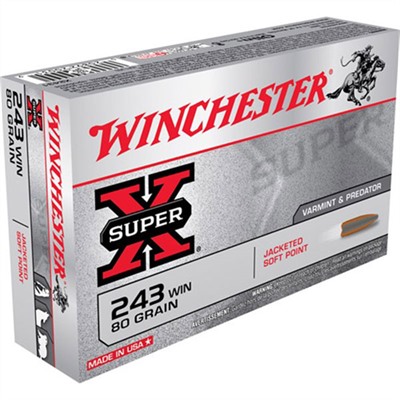
Dependable Knockdown Power For Every Type Of Hunt
Proven Accuracy
High Velocity
Maximum Impact
Rapid Controlled Expansion
Shooters choose Winchester’s legendary Super-X® ammunition because they kno...
.270 Winchester 2,950 FPS
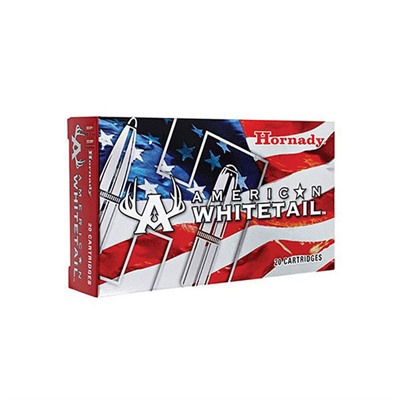
Opening day of deer season comes only once a year. Make sure you're ready when the big one steps out and load-up with Hornady® American Whitetail® ammunition.
Loaded with our legendary Hornady® Int...
.338 Lapua 2,960 FPS
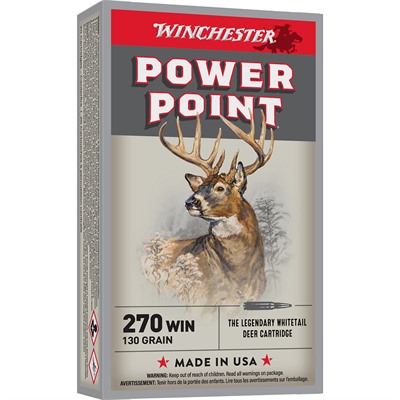
Dependable Knockdown Power For Every Type Of Hunt
Proven Accuracy
High Velocity
Maximum Impact
Rapid Controlled Expansion
Shooters choose Winchester’s legendary Super-X® ammunition because they kno...
450 Bushmaster 2,200 FPS
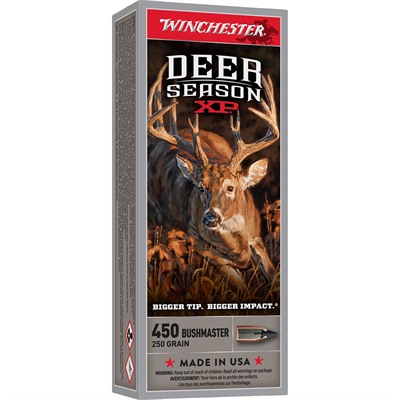
Deer Season XP ammunition combines our extensive experience into a product engineered specifically for deer hunters. The Extreme Point bullet features an oversized impact diameter. A bigger impact ...
At more than twice the speed of sound, these velocities at the muzzle create very intense and loud reports as the bullet exits the muzzle into the air. These sharp, intense sounds can be extremely detrimental to hearing unless proper hearing protection is worn.
Shotgun Muzzle Velocities for Comparison
Overall, shotguns produce much lower muzzle velocities than centerfire rifles. These lower velocities produce much less intense sounds. You must remember that barrel length and the type of load also affect the muzzle velocities.
These muzzle velocities are measured shooting factory birdshot shells in the same shotgun with different barrel lengths
12 gauge 22-inch barrel 1,304 FPS

The M2 Field shotgun is light, ruggedly built, and fast handling. It is the backbone of the Benelli semi-auto line that cycles everything from target loads to the heaviest 3-inch magnums. Available...
12 gauge 26-inch barrel 1,328 FPS
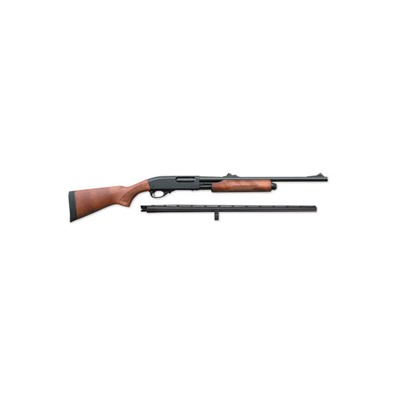
Like all Model 870 shotguns, this workhorse features a receiver milled from a solid billet of steel for maximum strength and reliability. The silky-smooth twin action bars prevent binding and twist...
12 gauge 28-inch barrel 1,331 FPS
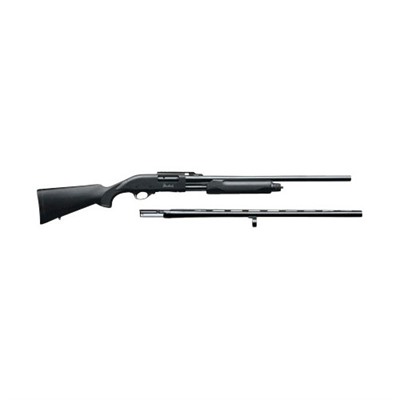
THERE ARE CERTAIN “MUST HAVE” QUALITIES that define a good pump gun: easy to use; comfortable to carry; incredibly reliable; and built tough enough for long days and season after season in the fiel...
20 gauge 24-inch barrel 1,092 FPS
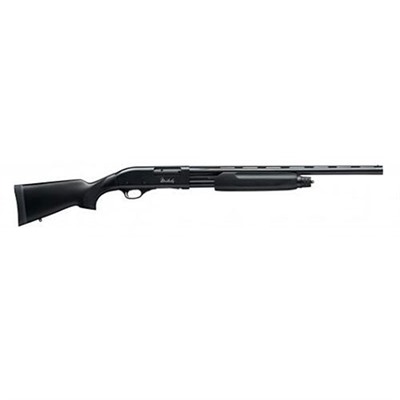
Perfect for Field Use
The Weatherby PA-08 Compact pump-action shotgun provides shooters with a classic designed to withstand heavy use in any weather or hunting grounds.
Great shotguns have to meet...
20 gauge 26-inch barrel 1,100 FPS
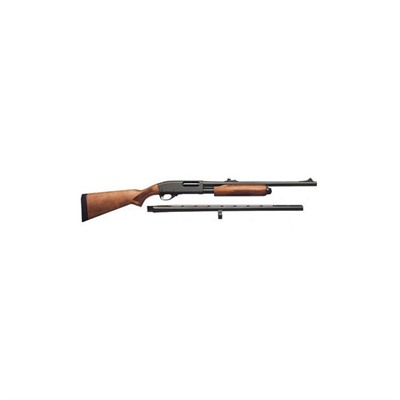
Designed with the same durability and reliability as the legendary Model 870 Wingmaster®, these quick-pointing 12 and 20 gauge slug guns provide rifle-like accuracy with their 20-inch fully rifled ...
20 gauge 28 inch barrel 1,101 FPS

Rugged reliability with a non-glare matte finish on the barrel and receiver that won’t cause birds to flare. The durable composite stock and forearm are up to tough conditions. The hard working SXP...
Overall, it is easy to see that most shotguns produce minimal noise levels due to the sonic report generated by the shot leaving the barrel. The relative size of each shot and the relatively low velocity keeps the sonic cracks much less intense.
This isn’t to say that shotguns' noise levels are less dangerous than those of centerfire rifles. At the noise levels generated by both, only a short exposure to these intense noise levels can permanently damage hearing.
What is Considered a Dangerous Noise Level?
The Centers for Disease Control considers any sound above 80 to 85 decibels to be dangerous to your hearing. Compared to both shotgun and centerfire rifle sounds, the CDC lists these common sounds and their relative noise levels.
- Normal Conversation or the sound of an air conditioner running 60 decibels
- A washing machine or dishwasher operating 70 decibels
- Normal city traffic 80-85 decibels
- A gas-powered lawnmower 80-85 decibels
- A very loud stereo or television 105-100 decibels
- 12 gauge shotgun 150 decibels
- An AR-15 with a 16” barrel 165 decibels
- Remington 700 firing .308 caliber ammo 167 decibels
Rifles may create louder sounds, but human hearing damage begins to occur at just above 85 decibels. With most centerfire rifles creating noise levels double that amount, damage can occur after only a few exposures to the sound levels.
What About Suppressors – Won’t They Protect Your Hearing?

Selected for the Mk18 and M4 by US Special Operations Command
The SureFire SOCOM556-RC2 is the 5.56 Rifle/Carbine Suppressor optimized for rifles with barrels 10” or longer. This suppressor is the ...
Suppressors do make a difference. However, the amount of noise reduction with most suppressors is not as much as most people think. On average, suppressors reduce the decibel level of the rifles by about 30 to 40 decibels. As an example, an AR-15 with a 16-inch barrel can produce sounds in the range of 165 decibels. A top-of-the-line suppressor can reduce this noise level to 130 to 140 decibels if you elect to shoot subsonic ammunition.
While this does reflect a substantial reduction in the noise levels, the decibel levels are still well above the point that the sound can damage your hearing.
The Takeaway from the Facts – Hearing Protection is a Must when Shooting

Innovative Design for Shotgunners and Action Shooters
The Caldwell E-Max Low Profile Behind the Neck Hearing Protection muffs feature an atypical design that allows for much more clearance for a sh...
Shotgun or rifle, the results are the same. Shooting without adequate hearing protection is a recipe for hearing loss in the long run. Some experts estimate that the sound levels of one shot from a high-power centerfire rifle can do as much damage to your hearing as working 40 hours in an industrial woodshop.
Shooting is a great sport enjoyed by thousands of people. However, it is a sport that must be performed safely to protect yourself. Your hearing is a valuable part of your life and shouldn’t be jeopardized by unnecessary risk-taking by not wearing adequate hearing protection.
The responses below are not provided, commissioned, reviewed, approved, or otherwise endorsed by any financial entity or advertiser. It is not the advertiser’s responsibility to ensure all posts and/or questions are answered.
